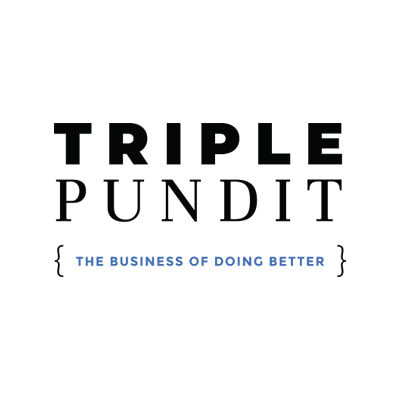
This post is part of Triple Pundit’s ongoing coverage of the SXSW Eco conference. For the rest, please visit our SXSW Eco page here.
Living Progress is HP’s vision of creating a better future for everyone through innovation and technology. Chris Librie, senior director of strategy and communications for HP, shared some of the strategies and projects the company is involved in around the world on the last day of the SXSW Eco conference.
First, Librie dove into the immense realities of HP’s scope and impacts: It is virtually impossible to go a day without interacting with some kind of HP technology, whether it is by a credit transaction or social media activity. Today, more data is created in 12 hours than was created in all of human history up to 2003, and HP’s Public Cloud uses more energy than all of Japan. If lined up side-by-side, the 8 to 10 million additional servers needed to store this data over the next 3 years will require the space of Manhattan.
These realities not only drive the necessity to think holistically, but also demonstrate the high degree of responsibility that HP has to lead us all in a more sustainable direction. Recognizing these impacts has motivated the company to consider the triple bottom line, Librie continued, because its team knows business-as-usual is not sustainable.
HP recognized the need to redesign its servers to not only be more energy efficient, but space efficient as well. With these constraints in mind, the company was able to create the HP Moonshot Server, which is 89 percent more energy efficient and is a small fraction of the size of a standard server.
In 2013, HP conducted its first comprehensive carbon footprint assessment and found that, in terms of total greenhouse gas emissions, supply chain activities account for 34 percent of its footprint, operations account for 5 percent, and the remaining 61 percent is due to the company's products. By 2020, HP aims to reduce supply chain and operations emissions by 20 percent each and product emissions by 40 percent. Librie notes that these daunting decreases may seem like barriers to some, but HP views the reductions as opportunities for innovation and competitive advantages.
Outside of its own products and services, HP has found creative ways to work with other organizations. As Librie explains, information technology is about making a difference, and collaboration is the tool to make these positive changes happen on a global scale. He dove into their partnership with the nonprofit organization Conservation International (CI), beginning with the shocking reality that the world’s rainforests are declining at a rate of 5 million hectares per year, which is roughly the size of Spain. CI started a project that uses cameras to capture data on animal species and vegetation in order to measure climate and habitat change in 16 different countries. This is an extremely data-heavy project, as CI produces 3 terabytes of data per year. This is where HP was able to lend its expertise, and together the organizations created the HP Earth Insights program. The Earth Insights program is essentially an early warning system for endangered species that builds in calls to action to intervene in species decline.
Another project that HP is involved in with CI is the Nature is Speaking film series, featuring different earth ecosystems with narrating voices of well-known actors such as Edward Norton and Harrison Ford. In order to get the word out and start the conversation around this project, HP intends to donate $1 per use of the hashtag #NatureIsSpeaking (up to $1 million) to Conservation International.
At the end of the discussion, Librie stressed the need for big companies to not only work with NGOs, but also take sustainability efforts even broader by cultivating synergistic relationships between companies, other organizations and communities by creating shared value. He confesses that HP has even partnered with a known competitor, Dell, in order to set up electronic waste operations in Kenya. He believes that fostering shared value between entities is ultimately a greater sustainability tool than pure philanthropy, in that it creates more lasting and long-term drivers towards resilient companies and, ultimately, a more sustainable world.
Image courtesy of HP Living Progress

TriplePundit editors offer news and insights on sustainable business.














